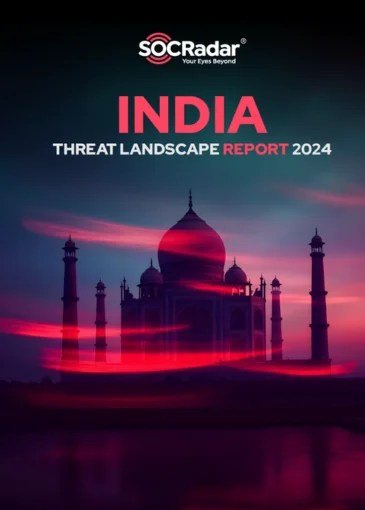India’s Evolving Cyber Threat Landscape: A Call for Enhanced Cybersecurity
In recent years, India has witnessed a significant transformation in its cyber threat landscape, with various sectors becoming prime targets for cybercriminals. As the digital ecosystem expands, so do the vulnerabilities that come with it. Educational services and public administration have emerged as the top targets on the dark web, highlighting the urgent need for organizations to bolster their cybersecurity measures.
The Dark Web: A Hub for Cybercrime
The dark web serves as a breeding ground for cybercriminal activities, where stolen data and credentials are traded and sold. Recent analyses indicate that databases account for over 55% of exposed data in India, making them a lucrative target for hackers. This alarming statistic underscores the necessity for organizations to prioritize data protection and implement stringent security protocols.
Educational institutions, often housing sensitive student and faculty information, are particularly vulnerable. The public administration sector, which manages critical government data, also faces significant risks. As these sectors become increasingly digitized, the potential for data breaches and cyberattacks grows, necessitating a proactive approach to cybersecurity.
Ransomware: A Growing Threat
Ransomware attacks have surged in frequency and sophistication, with groups like LockBit 3.0 leading the charge. This notorious ransomware group has primarily targeted the manufacturing sector, accounting for 30% of ransomware incidents in India. The implications of such attacks are severe, often resulting in operational disruptions, financial losses, and reputational damage.
Manufacturers, who rely heavily on technology for production and supply chain management, are particularly susceptible to these attacks. The consequences can be devastating, leading to halted production lines and significant recovery costs. Organizations must adopt comprehensive cybersecurity strategies that include regular backups, employee training, and incident response plans to mitigate the risks associated with ransomware.
Phishing Attacks: A Persistent Threat
Phishing attacks continue to plague various industries, with the information services sector being disproportionately affected. Cybercriminals employ increasingly sophisticated tactics to deceive individuals into revealing sensitive information, such as login credentials and financial data. The rise of remote work has further exacerbated this issue, as employees may be more susceptible to phishing attempts in a less controlled environment.
Organizations must invest in robust phishing detection tools and conduct regular training sessions to educate employees about recognizing and responding to phishing attempts. By fostering a culture of cybersecurity awareness, organizations can significantly reduce the likelihood of falling victim to these attacks.
Alarming Statistics: A Wake-Up Call
SOCRadar’s recent analysis paints a concerning picture of the cybersecurity landscape in India. Over 497,000 credentials have been exposed through stealer logs, and more than 114,000 recorded DDoS attacks have targeted Indian organizations. These statistics serve as a wake-up call for businesses and government entities alike, emphasizing the urgent need for enhanced cybersecurity measures.
The sheer volume of exposed credentials highlights the importance of implementing multi-factor authentication and regular password updates. Additionally, organizations must be prepared to defend against DDoS attacks, which can cripple online services and disrupt operations.
The Path Forward: Empowering Organizations
In light of these evolving threats, organizations must take proactive steps to strengthen their cybersecurity posture. SOCRadar’s Extended Threat Intelligence offers a comprehensive solution to help organizations stay ahead of cyber adversaries. By leveraging advanced tools such as dark web monitoring, phishing detection, and ransomware tracking, businesses can gain valuable insights into potential threats and vulnerabilities.
Investing in real-time threat intelligence is crucial for identifying and mitigating risks before they escalate into full-blown incidents. Organizations that prioritize cybersecurity will not only protect their sensitive data but also enhance their overall resilience in the face of evolving cyber threats.
Conclusion: A Call to Action
As India navigates an increasingly complex cyber threat landscape, the need for robust cybersecurity strategies has never been more critical. By understanding the current threats and implementing proactive measures, organizations can safeguard their data and maintain trust with their stakeholders.
To gain deeper insights and actionable strategies, organizations are encouraged to download SOCRadar’s comprehensive report. Empower your organization today and take the necessary steps to stay ahead of cyber adversaries in this rapidly changing digital world.

